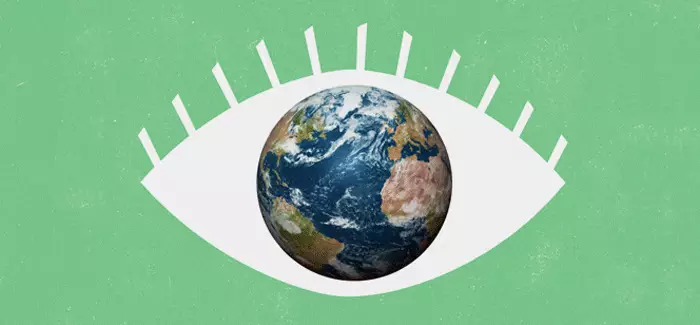Articles > Environmental Science >┬ĀWhat is an environmental compliance inspector?
What is an environmental compliance inspector?

Written by Dillon Price

Reviewed by Briana Houlihan, MBA, G-PM, Dean, College of General Studies

The relationship between humans and the environment is complex. Human activities affect air, water, soil and other components of the environment. Compliance inspections provide important information to better understand environmental effects at local, national and global scales.┬Ā
Why is an environmental compliance inspector role important?
An environmental compliance inspector collects information and brings it back to legal teams for potential action or enforcement; theyŌĆÖre part investigator and part interpreters of scientific information. They serve as the link between environmental law and real-world accountability, and they ensure that decision-makers have relevant information to determine optimal actions for environmental health.
Environmental inspections are essential for maintaining the quality of our air, water and land, and they support long-term sustainability efforts. By focusing on data collection, collaboration and education, environmental compliance inspectors contribute to a better understanding of the complex relationships between humans and the environment. They also play a crucial role in educating various stakeholders on regulations.
The types of regulations and standards that an environmental compliance inspector may be collecting information about are:
- Clean air and water: The Clean Air Act and Clean Water Act are designed to reduce harmful air emissions and prevent water contamination from industrial, agricultural and municipal sources.
- Waste management and pollution control: The Resource Conservation and Recovery Act and Comprehensive Environmental Response, Compensation, and Liability Act (Superfund) regulate hazardous and nonhazardous waste disposal and mandate the cleanup of contaminated sites.
- Chemical and pesticide safety: The Toxic Substances Control Act and Federal Insecticide, Fungicide, and Rodenticide Act govern the manufacturing, distribution, use and disposal of chemical substances and pesticides.
- Ecosystem protection: The Endangered Species Act protects vulnerable species and their habitats from destruction, fragmentation and pollution.
What does an environmental compliance inspector do?
Environmental compliance inspectors collect data from industrial facilities, construction sites, agricultural operations, etc., and the environment around these sites. They review permits, licenses and records to confirm compliance with local, state and federal regulations. By gathering and analyzing data, they support legal teams in determining appropriate action related to environmental laws, contributing to long-term sustainability and educating stakeholders on best practices.
The daily responsibilities of this role typically include:
- Examining field conditions to identify potential environmental impacts from projects including industrial, construction and agricultural sites
- Identifying code violations, issuing written notices and determining appropriate next actions to ensure compliance
- Conveying environmental regulations and best practices to project personnel to promote understanding and adherence
- Writing daily inspection reports that document field activities, often including photographs for clarity and accuracy
- Using digital tools and equipment to track data and maintain accurate records, ensuring that all information is up to date and accessible
- Preparing regulatory documentation and providing testimony during legal proceedings to support enforcement actions and compliance efforts
Where does an environmental compliance inspector work?
Those who work in this role may find themselves in an office, in a laboratory or at on-site field inspections. In the office, they document findings and complete reports based on what they observe at job sites. But their role also requires visiting these sites in person.
For fieldwork, this role requires working outdoors in potential harsh weather conditions or inside industrial facilities with loud, heavy machinery. Inspectors may also need to wear protective gear (e.g., masks and hard hats).
Many inspectors work full time for government agencies, consulting firms, testing laboratories, engineering services or industrial corporations. Traveling to different sites may lead to overtime, nights, weekends and occasional overnight stays.
How do you become an environmental compliance inspector?
This role typically requires a four-year bachelorŌĆÖs degree, such as a Bachelor of Science in Environmental Science, but some may not. Some positions may only require an associate degree or a high school diploma.
In addition to formal education, employers look for work-related skills, knowledge or experience. Employees in these roles should undergo extensive on-the-job training and may also need relevant work experience or vocational training to perform effectively.
The skills required for this role include:
- Technological skills: Using database software.
- Critical thinking: Applying logical thinking and analysis to evaluate the pros and cons of different solutions, conclusions or problem-solving methods.
- Communication skills: Listening and having excellent written and oral communication.
- Knowledge: Having extensive knowledge of the English language, law, technology and chemistry.
- Problem-solving skills: Identifying and solving problems using deductive and inductive reasoning.┬Ā
Environmental associations and events
An environmental compliance inspector may enhance their network with others in the field by joining environmental associates and attending events. Below are just two of the associations that inspectors may find beneficial, and they also may choose to focus on other organizations in which they have specific interest and experience.
The NREP (National Registry of Environmental Professionals) is a nonprofit organization that offers professional development opportunities. For example, members can attend online workshops that cover refrigerant compliance management, environmental management and other related fields. NREP also offers webinars and a bookstore where members can purchase sample exam questions and study guides.
The National Association of Environmental Professionals (NAEP) is a membership-based organization that supports the environmental science field through career development, networking and educational opportunities. It offers access to a biweekly newsletter and free webinars, along with local chapters.
The NAEP holds its Annual Conference & Training Symposium, which brings together environmental professionals from across the country to share knowledge and build connections. Members can also tune into the Environmental Professionals Radio podcast to get career advice, policy updates and more.
What is the future of compliance in environmental protection?
Emerging technologies are transforming the way environmental agencies and organizations manage compliance. For example, machine learning algorithms can analyze historical data, emissions trends and equipment performance to predict potential compliance issues.
Robotic process automation helps streamline reporting by automating routine data extraction, form completion and document submission. It can also pull information from emails, folders or databases, as well as fill out and submit web or electronic forms.
Natural language processing can enable systems to read, analyze and interpret reports and regulations. It can summarize and translate regulatory documents, track policy changes, analyze public feedback on proposed rules and even suggest compliance actions.
Additionally, inspectors working for environmental agencies can use Geographic Information System software to perform paperless inspections offline, monitor assets remotely, automate tasks and assess processes in real time.
With these technologies spearheading the environmental field, candidates may need to learn how to harness AI as an assistant tool without becoming over-reliant on it. Organizations that leverage AI view it as a ŌĆ£partnerŌĆØ in progress rather than a replacement for the skills this role requires.
Ready to learn more about environmental compliance inspector education?
If youŌĆÖre curious about how to become an environmental compliance inspector, ░«╬█┤½├Į offers the┬ĀBachelor of Science in Environmental Science. This online environmental science degree program explores topics such as environmental law, issues and ethics, sustainability and more.
If youŌĆÖre interested in learning more, reach out to UOPX to request additional information.

ABOUT THE AUTHOR
Dillon Price is a detail-oriented writer with a background in legal and career-focused content. He has written and edited blogs for dozens of law firms, as well as Law.com. Additionally, he wrote numerous career advice articles for Monster.com during the companyŌĆÖs recent rebranding. Dillon lives in Western Massachusetts and stays in Portugal each summer with his family.┬Ā

ABOUT THE REVIEWER
Briana Houlihan is the dean of the College of General Studies at ░«╬█┤½├Į. For more than 20 years, Houlihan has strongly advocated for first-generation and underserved working learners. She has made it her mission to enhance the skills focus within general education coursework to bring value to undergraduate students from day one of their program.
This article has been vetted by ░«╬█┤½├Į's editorial advisory committee.┬Ā
Read more about our editorial process.


